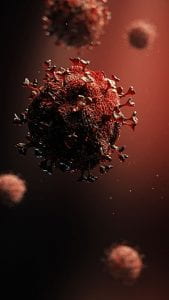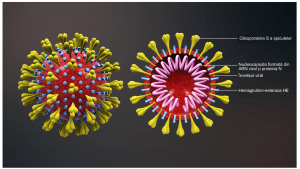As the SARS-CoV-2 virus (which causes COVID-19) struck the world beginning in early February of 2020, scientists are struggling to find new ways to combat such a violent and airborne virus. As scientist all over the world race to find a vaccine for this virus, others are studying to find new therapeutics to combat and minimize the effects. A team of researchers at University of Georgia have successfully demonstrated that a set of “drug-like small molecules can block the activity of a key SARS-CoV-2 protein — providing a promising path for new COVID-19 therapeutics”. The team of researchers from UGA were the first to evaluate the SARS-CoV-2 protein PLpro, which is an essential part of the coronavirus’s replication and ability to suppress host immune function. Scott Pegan, director of UGA’s Center for Drug Discovery, collaborated with scientists David Crich, Ralph Tripp, and Brian Cummings to explore inhibitors designed to “knock out PLpro and stop the replication of the virus”.
The Study
Throughout the study, the researchers from UGA began to test a series of compounds that were discovered twelve years ago that were shown to be effective against the SARS outbreak of 2002-03. The COVID-19 pandemic has affected more lives than the SARS outbreak of 2002-03, but at the time when this test was conducted, the researchers believed that the COVID-19 mortality rate was lower based on available numbers in early June. Pegan, along with the other two researchers responsible for this discovery, realized the similarities both SARS viruses possessed and formulated compounds that helped block the proteins of the coronavirus that are responsible for the genes to replicate. These compounds, known as naphthalene-based PLpro inhibitors, are shown to effectively halt SARS-CoV-2 PLpro ability to replicate and suppress host immune functions. “The kind of small molecules that we’re developing are some of the first that are specifically designed for this coronavirus protease……Our hope is that we can turn this into a starting point for creating a drug that we can get in front of the Food and Drug Administration”, Pegan states. UGA students also brought their expertises to the table, trying to compare both SARS diseases in order to find a possible Therapeutic that is affective against COVID-19.
Why is this Important?
As COVID-19 became the most prevalent topic of discussion in 2020, researchers and scientists still don’t know half of the characteristics that trigger the SARS-CoV-2 virus that make it so contagious and harmful. Pegan, along with his associates from UGA, have added to the efforts around the world in learning how to combat this world threatening epidemic. “Pegan’s lab used modeling techniques to locate the differences between PLpro in the 2003 outbreak and the current outbreak, revealing the comparative weakness of the SARS-CoV-2 PLpro and suggesting potential inhibitors for testing”. As many scientists and researchers are struggling to find ways to combat this disease, the discovery of a new compound that can halt the ability for the virus to spread provides hope to finding a cure for this deadly virus.
“Enveloped” viruses, such as SARS-CoV-2, are surrounded by a phospholipid bilayer derived from the host cell as it leaves the cell. This phospholipid contains spike proteins, which is what the virus uses to bind with receptors throughout human cells. The receptor that the virus binds to are known as “Angiotensin converting enzyme 2” (ACE2). After the virus binds with a receptor, it enter the cell via endocytosis, and continues to transfer throughout the cell until it reaches the nucleus, where it’s able to alter the transcription of the RNA within the nucleus and cause more of the virus to duplicate. Vaccines and some therapeutics bind with these spike proteins located around the phospholipid bilayer in order to prevent the proteins from binding to any human cell receptors.
With the infection and death rate rising each day, along with new discoveries about how this virus functions, it is apparent that scientists and researchers are working as fast as they can to find new therapeutics and vaccines in order to stop the spread of this virus. I believe we all need to put fourth an effort in stopping the spread of this worldwide pandemic, as Scott Pegan did with his courageous findings of a possible new therapeutic, because if we don’t act soon, it will be too late. What do you think? Leave a comment below!




Leave a Reply